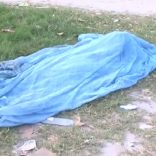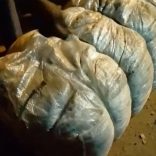Mozambique: Two hotels, 21 offices and more seized by the Attorney General's Office in 2024
Prosecutors can’t find Satar’s assets – AIM report

File photo
Prosecutors in Maputo say they cannot find the assets of the country’s most notorious assassin, Momad Assife Abdul Satar (“Nini”).
Satar was one of the business figures who ordered the assassination of Mozambique’s foremost investigative journalist, Carlos Cardoso, in November 2000. He served half of a sentence of 24 years and six months for the murder, and then was released on parole, much to the annoyance of the police and prosecution services who were convinced that he had been organising other crimes form his jail cell.
He was granted parole based on claims that he had shown “good behaviour” in prison – yet it was known that gods banned in prison, notably cell phones, had been repeatedly smuggled into Satar’s cell, and he had used them for criminal contacts with the outside world.
The Maputo City Court ordered Satar, and the other five people found guilty of the murder, to pay compensation of 14 billion meticais (588,000 US dollars at the exchange rate of the time) to Cardoso’s two children. To date, Satar has paid nothing at all.
Satar was also found guilty, in a separate trial, of defrauding the country’s largest commercial bank, the BCM, of the equivalent of 14 million dollars. He was sentenced to a further 14 years imprisonment, but has not served a day of this sentence, nor has he repaid any of the money stolen from the BCM.
Shortly after his release on parole, Satar was authorised, in 2014, to travel abroad for medical treatment, though it was never explained what he was suffering from that could not be treated in Mozambique.
The Attorney-General’s Office continued to investigate Satar’s involvement in other crimes, notably the wave of kidnappings of wealthy business people that struck Mozambican cities as from late 2011. In April 2017, Satar’s parole was cancelled, and an international warrant for his arrest was issued.
With Interpol help, he was tracked down to Thailand, where he had been living under an assumed name. He was deported to Mozambique in late July this year.
Cited in Friday’s issue of the independent daily “O Pais”, the Maputo City Chief Attorney, Amelia Machava, said prosecutors have ended their preparatory investigation of two cases against Satar. One concerns his use of a false name and false documents and corrupting an official of the immigration service. In the second charge sheet, Satar is also accused of kidnapping, attempted kidnapping, theft, use of forbidden weapons, and membership of a criminal association. The prosecutors allege that some of these crimes occurred while Satar was still serving his sentence for the Cardoso murder, and others after his release on parole.
Machava said the prosecutors have been looking, unsuccessfully, for Satar’s assets. “As you will recall, he was found guilty in the BCM fraud case”, she said. “There is money from the state that needs to be recovered”. She was referring to the fact that the Mozambican state was obliged to fill the 14 million dollar hole in the finances of the BCM, which was being privatised at the time.
“If we know or have exact information about the location of his assets, the State will certainly activate all means of international cooperation for the return of these assets”, she added.
Nothing belonging to Satar has been recovered inside Mozambique “because the goods aren’t registered”, she said, “or they may be in the names of other people, but we don’t have any exact location”.
Yet it was reported, years ago, that other members of the Abdul Satar family were busy selling off property or moving assets abroad. But no measures were taken to freeze these assets.
Satar has flaunted his wealth. While he was a fugitive, he boasted on his Facebook page of his riches, his taste for expensive cars, clothes and watches, and his travels to places such as Monaco. But now it all seems to have evaporated – or at least the Mozambican prosecutors can’t find it.













Leave a Reply
Be the First to Comment!
You must be logged in to post a comment.
You must be logged in to post a comment.